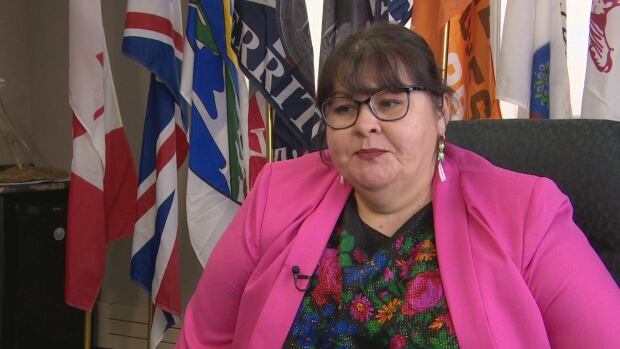
Dealing with Sask. First Act one of treaty commissioner's top priorities for 2023
CBC
Last year, Treaty Commissioner of Saskatchewan Mary Culbertson was critical of the proposed Saskatchewan First Act and now, in 2023, she is questioning the basis, accuracy and respect of treaty rights of the bill.
The provincial government introduced the Saskatchewan First Act last November, stating the act would assert exclusive provincial jurisdiction over natural resources in Saskatchewan.
Indigenous advocates have said the act threatens inherent and treaty rights of Indigenous people. The Federation of Sovereign Indigenous Nations, which represents 74 First Nations in Saskatchewan, has called for blockades while it organizes legal action against the provincial government.
Culbertson said she believes the Saskatchewan First Act does offend inherent and treaty rights.
"Just because a government says it doesn't infringe on rights, doesn't necessarily mean that's the facts or truth," she said.
"Who do they have stating it's not going to infringe on [treaty] rights? Do they have policy advisors and experts who actively exercise treaty and inherent rights to know what an offence to those rights are?"
In a statement announcing the bill, the provincial government stated: "The Act amends the Constitution of Saskatchewan to clearly confirm Saskatchewan's sovereign autonomy and asserts Saskatchewan's exclusive legislative jurisdiction under the Constitution of Canada over a number of areas."
Culbertson said the "Constitution of Saskatchewan" does not exist.
Joyce Green, a professor emerita at the University of Regina in political science, said, "Really there isn't such a thing as an independent constitution; the provinces and federal governments are created and defined by the British North America Act of 1867, now renamed the Constitution Act of 1876."
The preamble of the Saskatchewan First Act states Saskatchewan attained full status and autonomy over Crown lands and natural resources through the Natural Resources Transfer Act (NRTA) of 1930, between the federal government and the Prairie provinces.
Culbertson said the NRTA has been at odds with treaty rights since its inception.
"That's my opinion as a treaty commissioner into what the treaties were supposed to be, the intent of them, the spirit and intent of them, and negotiations around the treaties," she said,
"The NRTA is something that should not have happened."
Green said the NRTA "certainly" conflicts with treaty rights.





















 Run 3 Space | Play Space Running Game
Run 3 Space | Play Space Running Game Traffic Jam 3D | Online Racing Game
Traffic Jam 3D | Online Racing Game Duck Hunt | Play Old Classic Game
Duck Hunt | Play Old Classic Game